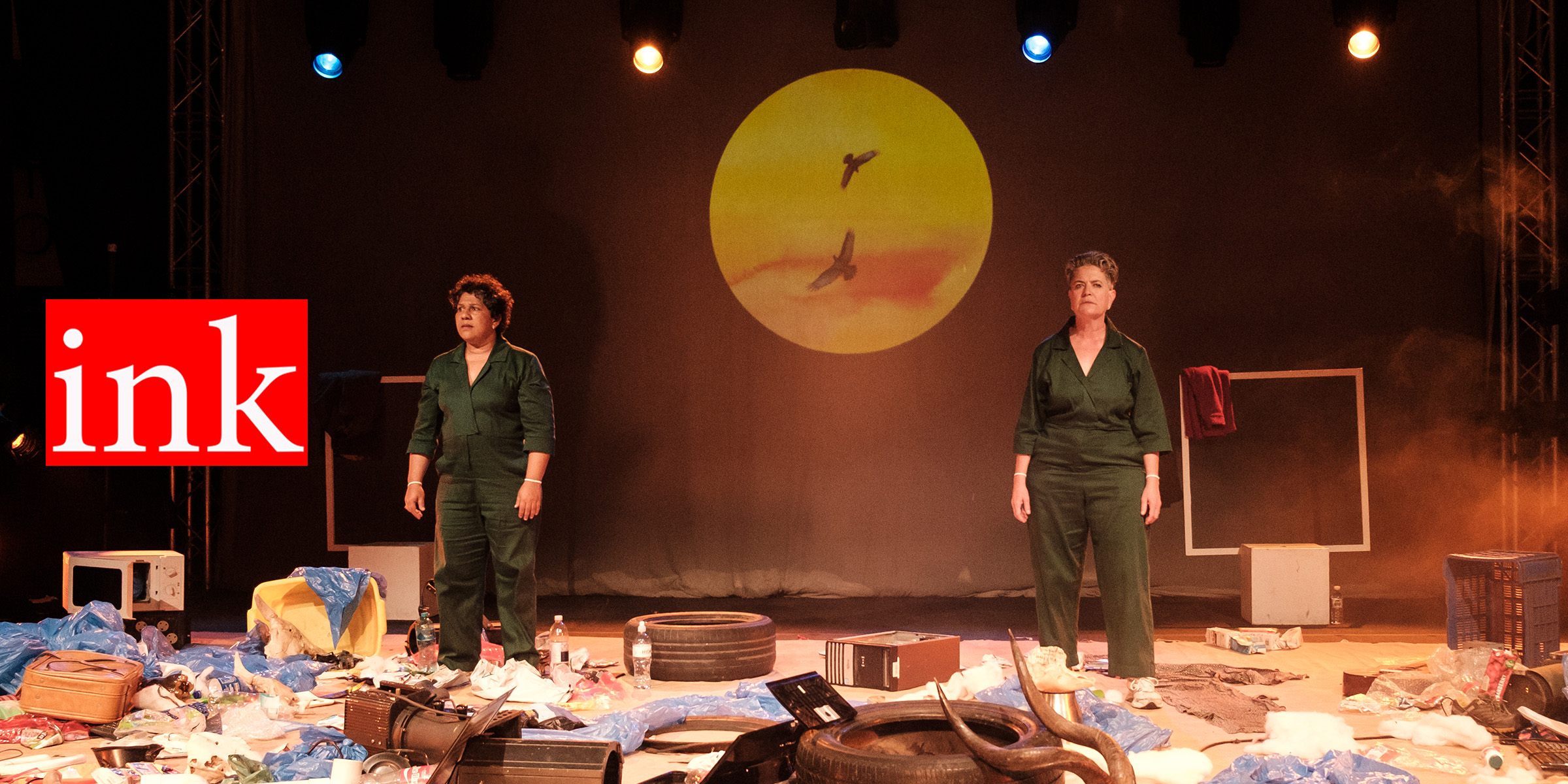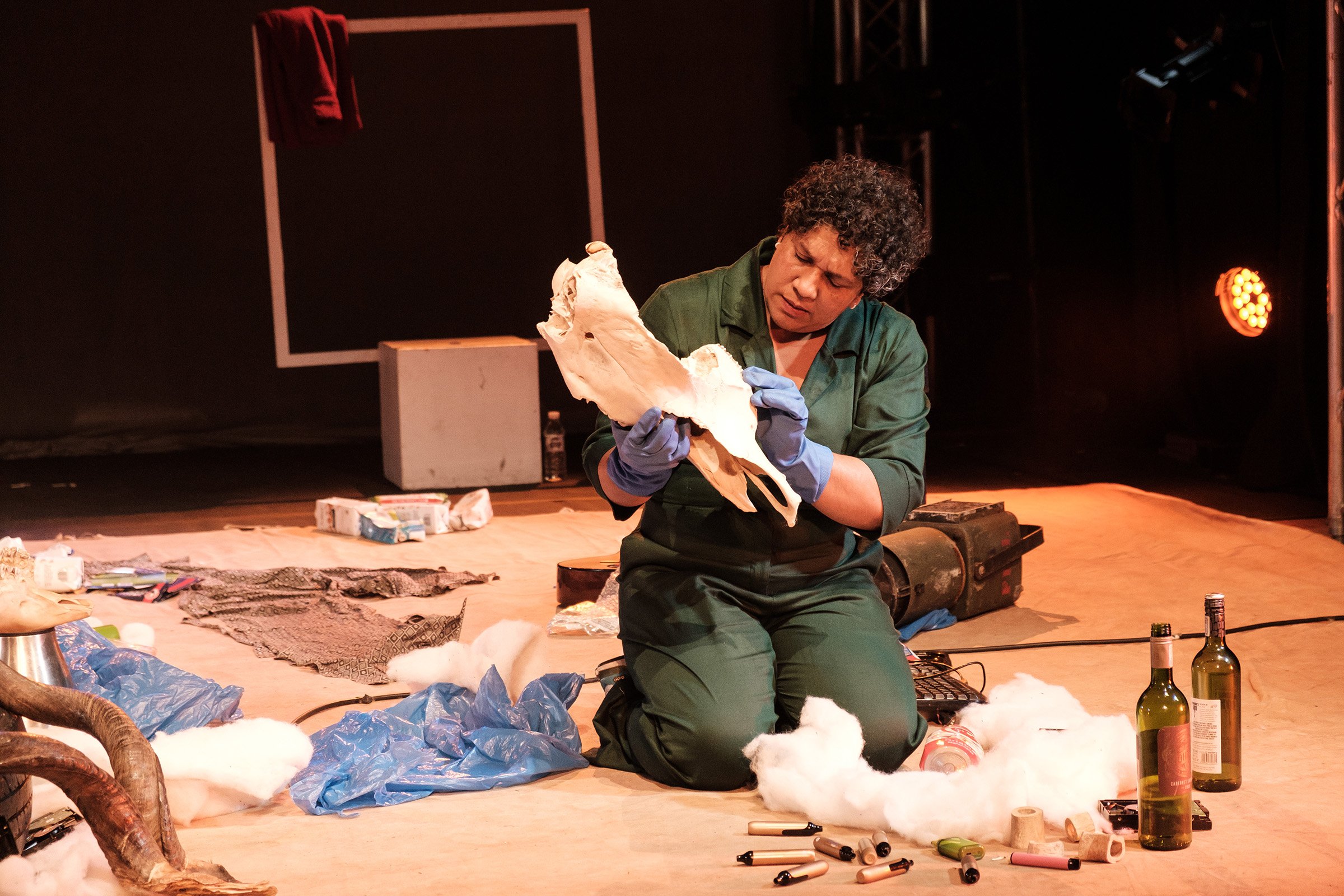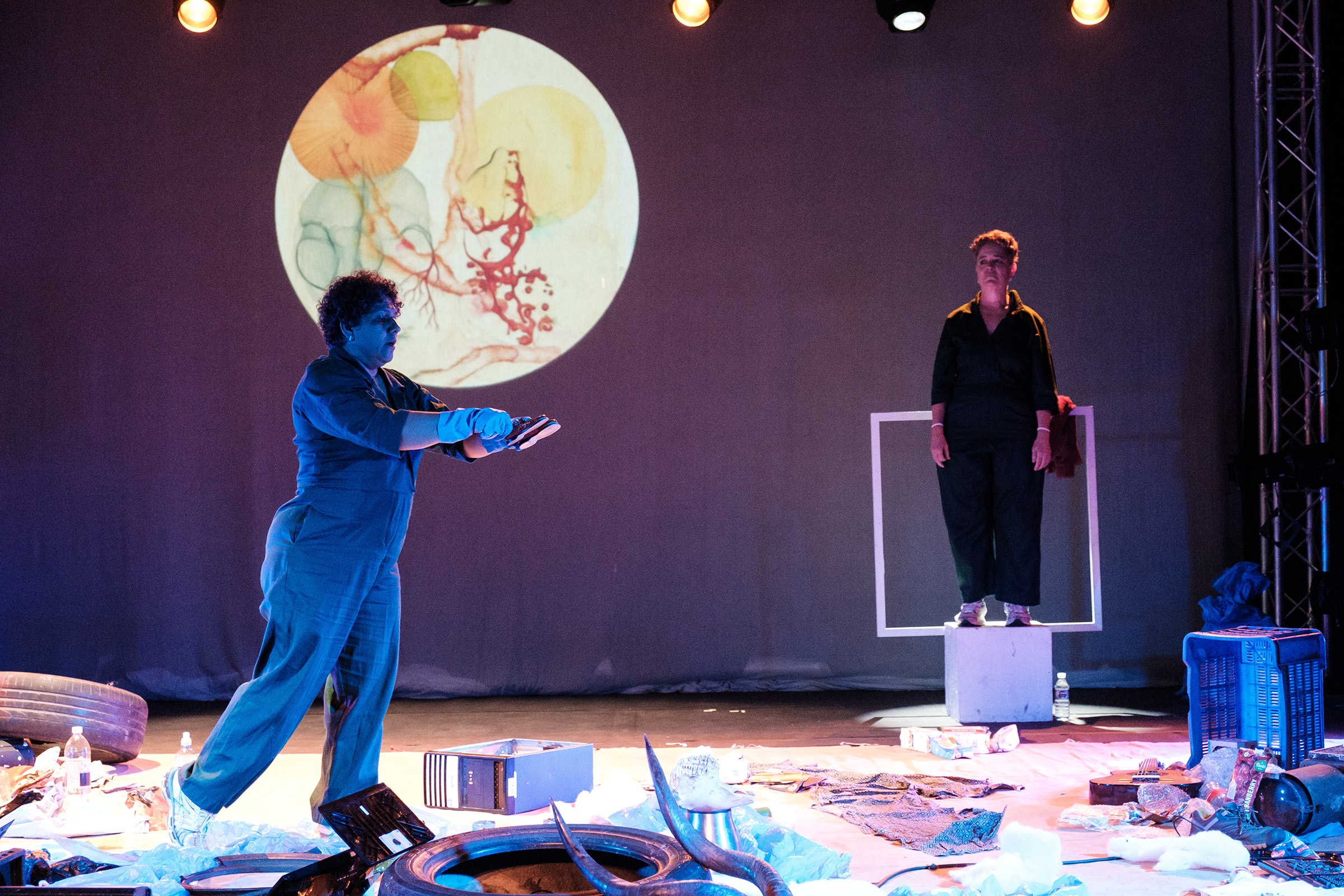
Production: An Apprenticeship with Sorrow
By: Uendjizuvira Kandanga
Photos: Pierre Rommelaere
Amidst the stage of ruin, littered with tyres, animal horns, plastic bottles, electrical cords, crates, and even a microwave, are two women cleaning up, both literally and emotionally, as they unpack conflict and unresolved pain. The setting becomes more than a stage design – it reflects the inner wreckage that grief causes and leaves behind.
An Apprenticeship with Sorrow, written and performed by Sara Matchett and Nina Callaghan, is an intense depiction of grief, loss, and the slow death of both memory and the planet. The play follows a mother and daughter navigating dementia and, in doing so, explores how personal decay mirrors the world’s own collapse.
The actresses use their first names in the play, which is a strategic choice to make the story that much more personal.

Tension flares between Sara, the mother, and Nina, the daughter, and it is through these moments that one can see how skilled the actresses are. Nina’s frustration simmers as they confront old grievances, and, in one scene, she races across the stage and frantically searches through the debris until she finds a pair of baby shoes. A soft melody begins to play as she lifts them to her face. It leaves one wondering whether we, too, fill our lives with objects we cannot let go of, ornaments of love we fear to lose.
“Everything we love, we will lose,” the women chant, louder and louder, until they cry and scream. Their acting is intense, gut-wrenching even. I think of losing my family, and tears well up in my eyes.
Later, they speak to the audience with righteous anger about the human destruction of the Earth, and I nod in agreement.

Sara admits her fear of her cognitive abilities slipping away, and she finds herself in the centre of the Earth, gasping, gurgling, and struggling for air. Her performance is eerily realistic and captures the helplessness of those trapped inside a failing mind, fully aware of their own decline.
In the final moments, the two stand at the centre of their polluted world, holding crates filled with trash. They have tried and failed to clean it all. The image is devastating: No matter how much effort we put in, some damage cannot be undone.

Though profoundly moving, An Apprenticeship with Sorrow is not easy to watch because conflict is uncomfortable to face and unpack. The narrative shifts rapidly between the present and the past, and, at one point, Sara’s father, who had dementia, is introduced randomly. This makes the dialogue challenging to follow.
This play is a reminder that decay, whether of memory or the Earth itself, is inevitable. It is a reminder that mourning, too, can be an act of love.
*
11 OCT 17:00 | 12 OCT 13:00 | 13 OCT 20:00
HMS Bloemhof School Hall


